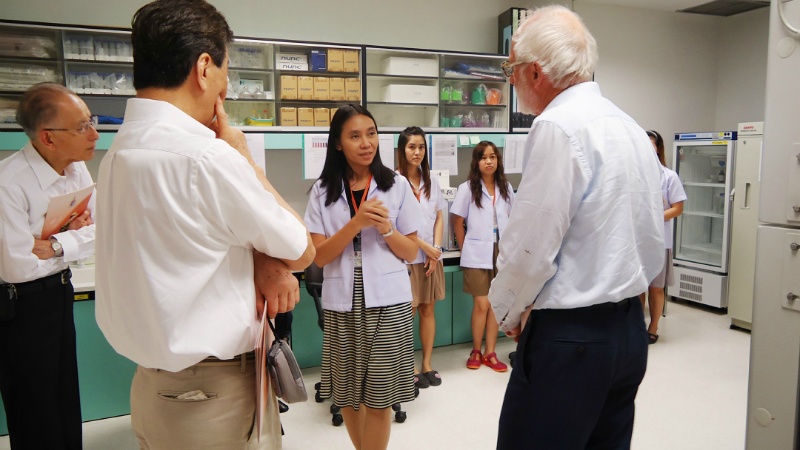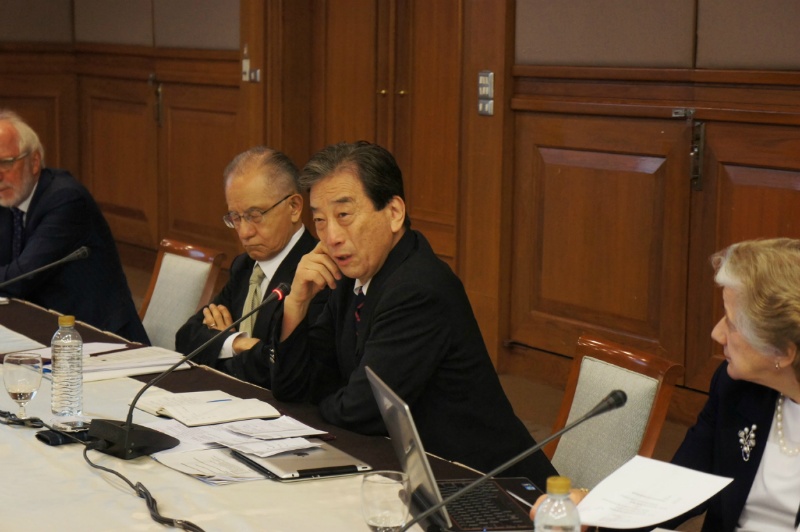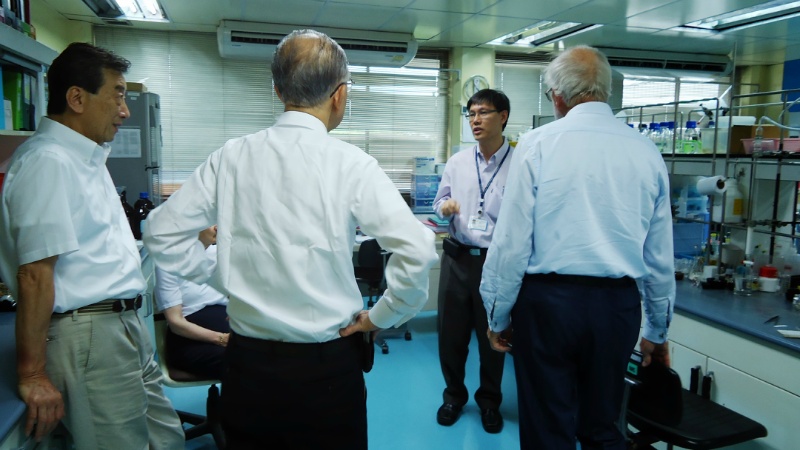After the Kavli Conference at University of Tokyo, I departed Narita Airport on the evening of the 28th for Bangkok to for the President Council. Our host was a member of the President Council, the Royal Highness Chulabhorn of Thailand. I was invited to speak at the entrance ceremony of the University of Tokyo this year, so I participated with feelings of gratitude though my schedule was very tight. From Japan, there was President Hamada, and others of administration of the University of Tokyo, and of the Council members, Professor Emeritus Yoshino of Harvard (he had also faculty position at UCLA in the late 1960s), Mr. Yokoyama, and Mr. Munjal from India, Dr. Raivio from Finland, Hassan Jamil and Rita Colwell. It was my third meeting with Ms. Colwell this year.
We visited the Chulabhorn Research Institute and the Chulabhorn Cancer Hospital next door. The facilities are extensive and research is conducted actively. There is also research on local organisms and aquatic plants from the sea that are effective for treating cancer. In one of the research labs there was a talented young researcher who studied at John Hopkins as an undergraduate and received a PhD from there as well. I wish all the best for future achievements.
The cancer hospital is also relatively new, with one hundred beds, and it is a hospital that specializes in cancer. There were some cherry blossoms decorating the lobby. As this is a new hospital, other than there are plans for expanding it into a center for extracting cancer samples analysing cancer. According to her Royal Highness, the budget has become tight recently and there is difficulty in moving things along.
In the evening, I attended a dinner with her Royal Highness.
The next day, Dean Kiyono gave a presentation on the President Council, several challenges for the University of Tokyo, around the world and research by the Institute of Medical Science on the“rice vaccine,” in which mucosal immunity is induced by inserting antigenic agent into rice. The vaccine does not need to be refrigerated and is a very interesting research concept. The presentation was superb, reflecting his career of twenty years in the United States.
In India, I had met the father of Mr. Munjal, Chairman of the Hero Group (he is currently ninety and very well). He has long been an avid supporter of education and has major plans of establishing Munjal University. It is promising and is likely to actively incorporate many new innovations from the world.
I took a red eye flight back to Haneda, where I landed at 5:45 AM. I returned home to take a shower and then went to the British Embassy for breakfast at 7:20 with the State Minister for Energy and Climate Change, the Rt Hon Edward Davey MP. It is admirable that there is a periodic changing of ministers accompanied with civil servants under the Minister in the UK.
As I felt the other day in West Sussex, British politicians are highly talented and well trained.



